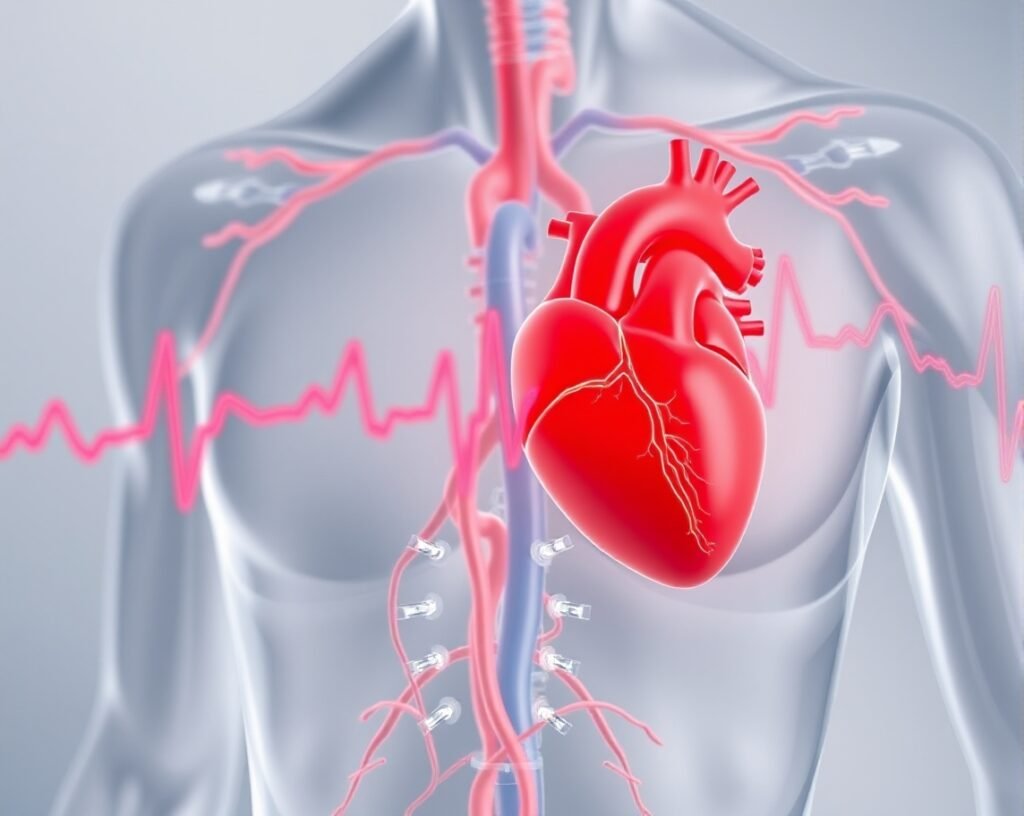Table of Contents

Introduction
Congestive Heart Failure Mayo: is a challenging condition that affects millions of people worldwide. Although it might seem daunting, there are many ways to manage and strengthen your heart health, especially when following research-backed advice. As a world-renowned medical institution, Mayo Clinic offers invaluable insights into managing CHF and living a healthier life. In this guide, we’ll explore seven proven strategies to strengthen your heart naturally, focusing on practical lifestyle changes you can make starting today.
Congestive Heart Failure Mayo. What is Congestive Heart Failure?
Congestive heart failure (CHF) occurs when the heart is unable to pump blood as effectively as it should. This inefficiency leads to a buildup of fluid around the body, which can cause symptoms like fatigue, shortness of breath, and swelling in the legs and ankles. CHF isn’t necessarily a single condition but rather a result of other heart problems, like coronary artery disease or high blood pressure, that have progressively weakened the heart over time.
Managing CHF often requires a combination of medical treatment and lifestyle adjustments. Mayo Clinic, known for its cutting-edge research and compassionate patient care, emphasizes a comprehensive approach to CHF. Their recommendations include both traditional treatments and lifestyle adjustments to improve quality of life for CHF patients.
Understanding the Heart Failure Journey
Heart failure can vary widely in severity and progression. Some people experience mild symptoms, while others may need more intensive management to keep symptoms at bay. Let’s break down what CHF looks like at different stages:
- Stage A – Pre-heart failure, with risk factors but no symptoms.
- Stage B – Heart damage with no symptoms.
- Stage C – Structural heart disease with symptoms.
- Stage D – Advanced symptoms that impact daily life, requiring specialized treatments.
Since early intervention can help prevent CHF from worsening, it’s essential to recognize the symptoms and consult a healthcare provider if you have concerns.
7 Proven Strategies to Strengthen Your Heart Naturally
Now, let’s explore seven strategies, each rooted in Mayo Clinic’s recommendations, that can naturally strengthen your heart and support better health.
1. Adopt a Heart-Healthy Diet
Your diet is one of the most powerful tools for managing CHF. Mayo Clinic recommends focusing on nutrient-dense foods that support heart function and reduce strain on the cardiovascular system.
- Focus on Whole Foods: Fruits, vegetables, whole grains, lean proteins, and healthy fats are essential for heart health. The Mediterranean diet, rich in these components, is particularly beneficial.
- Limit Salt Intake: Salt (sodium) can cause the body to retain fluid, increasing blood pressure and putting extra strain on the heart. Aim to limit salt intake to about 1,500 mg per day.
- Choose Healthy Fats: Avoid trans fats and limit saturated fats. Instead, include healthy fats from sources like olive oil, nuts, and avocados.
Sample Meal Plan: A breakfast of oatmeal topped with berries, a lunch of grilled salmon with leafy greens, and a dinner of quinoa-stuffed peppers with a side of vegetables can provide balanced nutrition without excess sodium.
2. Prioritize Regular Physical Activity
Regular exercise is crucial for strengthening your heart and improving circulation. Mayo Clinic recommends moderate physical activity for CHF patients, but it’s important to choose exercises that are suitable for your condition.
- Start Slow: Begin with light exercises like walking, swimming, or cycling. Aim for about 150 minutes of moderate aerobic activity each week.
- Strength Training: Light weightlifting can improve muscle tone and endurance, which is especially helpful for those managing CHF symptoms.
- Stretching and Flexibility: Gentle stretching exercises and yoga improve flexibility and reduce stress, further benefiting heart health.
Tip: Always consult your healthcare provider before starting any new exercise program, as they can tailor recommendations to your specific needs.
3. Manage Stress Through Mindfulness and Relaxation
Stress has a significant impact on heart health. When stressed, the body releases hormones that increase blood pressure and heart rate, putting strain on the cardiovascular system. Mayo Clinic’s experts advocate for mindfulness and relaxation techniques to help manage stress.
- Practice Deep Breathing: Deep breathing exercises activate the parasympathetic nervous system, helping to lower blood pressure and relax the heart.
- Engage in Meditation: Regular meditation can improve heart rate variability and reduce stress. Start with just five minutes a day and gradually increase the duration.
- Try Progressive Muscle Relaxation: This involves tensing and then releasing different muscle groups to help the body unwind.
Resource: Mayo Clinic offers resources and guidance on meditation and relaxation exercises that can support heart health.
4. Get Quality Sleep Each Night
Good sleep is essential for heart health, as poor sleep can increase the risk of high blood pressure, obesity, and even heart disease. Sleep apnea, a condition that interrupts breathing during sleep, is also common in those with CHF and can worsen symptoms if untreated.
- Establish a Routine: Go to bed and wake up at the same time every day to regulate your internal clock.
- Create a Relaxing Bedtime Routine: Avoid screens, caffeine, and large meals before bed. Consider gentle activities like reading or listening to calming music.
- Seek Treatment for Sleep Apnea: If you or a loved one notices snoring or pauses in breathing during sleep, talk to your doctor. A CPAP machine may be recommended to help maintain steady breathing.

5. Stay Hydrated, But Manage Fluid Intake Wisely
Proper hydration is crucial, but for CHF patients, it’s a balancing act. Mayo Clinic advises CHF patients to monitor fluid intake carefully to prevent fluid overload, which can worsen symptoms.
- Monitor Your Daily Fluid Intake: Work with your healthcare provider to determine the right fluid limit, often around 1.5–2 liters daily.
- Avoid Excessive Caffeine and Alcohol: Both can lead to dehydration and strain on the heart, so it’s wise to limit these.
- Track Your Weight Daily: A sudden increase in weight could indicate fluid retention, which may need attention from a healthcare provider.
Tip: Sip fluids slowly throughout the day rather than consuming large amounts at once.
6. Regularly Monitor and Manage Blood Pressure
High blood pressure is a significant risk factor for CHF, so managing it is essential. Mayo Clinic emphasizes the importance of blood pressure control to reduce the strain on your heart.
- Use a Home Monitor: Invest in a reliable blood pressure monitor and check your levels daily to catch any changes.
- Follow Medication Guidelines: If your doctor prescribes medication for blood pressure, take it as directed.
- Limit Stimulants: Minimize caffeine and avoid smoking, as both can raise blood pressure.
Tip: Keeping a journal of your blood pressure readings can help you and your doctor make more informed treatment decisions.
7. Partner with Your Healthcare Team
One of the best ways to manage CHF is to work closely with your healthcare team. Mayo Clinic advocates for a collaborative approach, where patients and healthcare providers work together to create and adjust a care plan as needed.
- Schedule Regular Check-ups: Even if you’re feeling well, regular appointments allow your doctor to track your progress and catch any issues early.
- Stay Informed: Learn about your condition and treatment options, including new research and lifestyle interventions.
- Communicate Openly: Share any changes in your symptoms or questions with your healthcare provider.
Resource: Mayo Clinic offers a range of online resources, virtual consultations, and patient education materials to support those with CHF.
Frequently Asked Questions (FAQs)
1. What are the early signs of congestive heart failure?
Early signs include shortness of breath, fatigue, swelling in the legs, and difficulty exercising. If you notice these symptoms, it’s best to consult your healthcare provider.
2. Can congestive heart failure be cured?
While CHF is typically a chronic condition, many people manage it successfully with lifestyle changes and medication. Early intervention can slow progression and improve quality of life.
3. What foods should I avoid with congestive heart failure?
Limit sodium, processed foods, and high-fat foods. It’s also wise to avoid excessive caffeine and alcohol.
4. Is exercise safe for people with congestive heart failure?
Yes, with your doctor’s guidance. Gentle exercises like walking and swimming can improve heart function without overexerting the body.
5. How does Mayo Clinic approach CHF treatment?
Mayo Clinic uses a comprehensive approach that includes medical treatment, lifestyle guidance, and ongoing patient education.
6. What medications are common for CHF?
Medications may include ACE inhibitors, beta-blockers, and diuretics to support heart function and control blood pressure.

Conclusion
Congestive heart failure doesn’t have to define your life. With guidance from experts like Mayo Clinic, you can adopt these seven strategies to strengthen your heart and improve your quality of life naturally. Remember that small, consistent steps make a big difference. By following a heart-healthy diet, staying active, managing stress, getting quality sleep, and partnering with healthcare providers, you’re setting yourself up for better heart health and a brighter future.



Pingback: Heart Failure Disability: 7 Powerful Ways to Manage It and Boost Your Health Daily. - Zabih Ch
Pingback: Heart and Health Massapequa: 7 Essential Tips to Boost Your Vitality and Wellness. - medicationassistant
Pingback: Ballad Health CVA Heart Institute: 5 Key Benefits for Optimal Heart Wellness and Lifelong Health. - Zabih Ch
Pingback: Upnourish Cholesterol Heart Health: 5 Proven Strategies to Strengthen Your Heart Naturally and Effectively